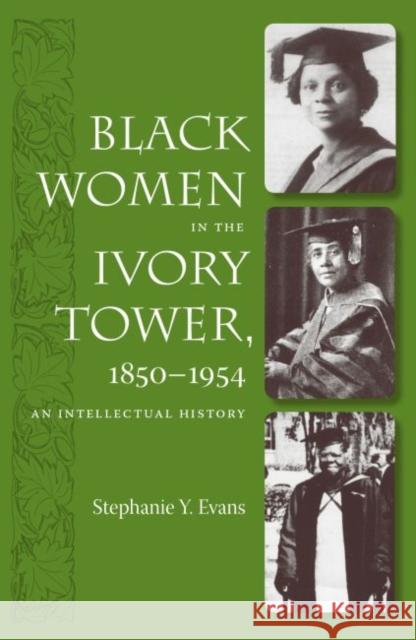Black Women in the Ivory Tower, 1850-1954: An Intellectual History » książka
Black Women in the Ivory Tower, 1850-1954: An Intellectual History
ISBN-13: 9780813032689 / Angielski / Miękka / 2008 / 288 str.
Black Women in the Ivory Tower, 1850-1954: An Intellectual History
ISBN-13: 9780813032689 / Angielski / Miękka / 2008 / 288 str.
(netto: 93,24 VAT: 5%)
Najniższa cena z 30 dni: 96,71
ok. 22 dni roboczych.
Darmowa dostawa!
"Provides scholars with a historical lens from which to view the higher education of black women . . . and] how one generation of black women benefited from the work and sacrifices of the prior generation."--Adah L. Ward Randolph, Ohio University
"Keen historical and theoretical observation of African American women's relationship to educational institutions in the United States."--Heidi Lasley Barajas, University of Minnesota
Evans chronicles the stories of African American women who struggled for and won access to formal education, beginning in 1850, when Lucy Stanton, a student at Oberlin College, earned the first college diploma conferred on an African American woman. In the century between the Civil War and the civil rights movement, a critical increase in black women's educational attainment mirrored unprecedented national growth in American education. Evans reveals how black women demanded space as students and asserted their voices as educators--despite such barriers as violence, discrimination, and oppressive campus policies--contributing in significant ways to higher education in the United States. She argues that their experiences, ideas, and practices can inspire contemporary educators to create an intellectual democracy in which all people have a voice.
Among those Evans profiles are Anna Julia Cooper, who was born enslaved yet ultimately earned a doctoral degree from the Sorbonne, and Mary McLeod Bethune, founder of Bethune-Cookman College. Exposing the hypocrisy in American assertions of democracy and discrediting European notions of intellectual superiority, Cooper argued that all human beings had a right to grow. Bethune believed that education is the right of all citizens in a democracy. Both women's philosophies raised questions of how human and civil rights are intertwined with educational access, scholarly research, pedagogy, and community service. This first complete educational and intellectual history of black women carefully traces quantitative research, explores black women's collegiate memories, and identifies significant geographic patterns in America's institutional development. Evans reveals historic perspectives, patterns, and philosophies in academia that will be an important reference for scholars of gender, race, and education.
Stephanie Y. Evans is assistant professor in the African American Studies Program and Center for Women's Studies and Gender Research at the University of Florida."











